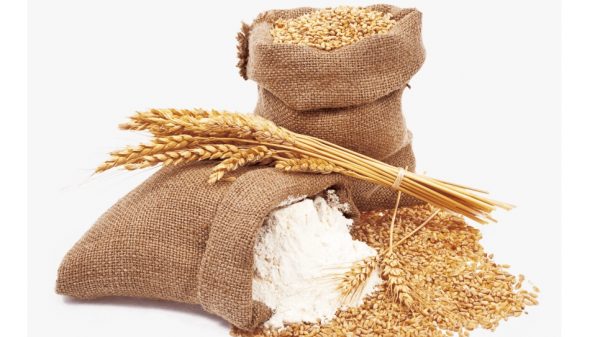Flour price soars amid fall in wheat import

- Update Time : Thursday, October 20, 2022
- 114 Time View

A fall in wheat import has caused a surge in the price of wheat flour and many food items made of flour in the country.
The demand for wheat and wheat-made food items has increased manifold in the country over the few years due to population growth and food-habit change.
Some 3.80 lakh tonnes of wheat has been imported by the government and private importers in the first quarter from July to September in FY 2022-23, according to the food ministry data.
Wheat import was 6.40 lakh tonnes in the same period in 2021 and 12 lakh tonnes in the same period in 2020.
Importers and traders claim that increasing US Dollar exchange rates and higher freight charges were the reason for lower wheat import in the country.
Food Secretary Ismiel Hossain told the Daily Sun that the government already completed a G2G (Government to Government) agreement to procure 5 lakh tonnes of wheat.
The food ministry will sign more agreements for importing essential items after observing the food situation in the country, he said.
Bangladesh earlier set a government-to-government deal to import 500,000 tonnes of wheat from Russia.
The food ministry has fixed a target to import 6.5 lakh tonnes of wheat, including 5 lakh tonnes from Russia and the rest from Bulgaria.
Shipments of one lakh tonnes from Bulgaria and 50,000 tonnes from Russia have already arrived in the country. Shipment of another 50,000 tonnes from Russia is expected to arrive by this month.
Mehfuz Alam of Afzal Traders at Moulvibazar wholesale market told the Daily Sun that the booking rate of wheat has declined in the international market but the increasing rate of dollars and the higher freight charge is discouraging traders to import a bulk amount of wheat at a time.
The price of loose atta has increased to Tk 58-59 per kg from Tk 54-56 per kg and loses maida price increased to Tk 66 per kg from Tk 64 per kg in a week in the capital on Saturday. Lose atta price increased by 9.71 per cent in a month, packet atta price increased by 6.19 per cent in a month, lose maida price increased by 4.17 per cent and packet maida price increased by 3.57 per cent in a month in the capital, according to Trading Corporation of Bangladesh (TCB) data.
Declining wheat production has been expanding import dependency and increasing import expenses to meet the food security of the country.
The country’s wheat production was decreasing by 0.44 per cent a year on average from 1999 to 2020, according to Knoema, a comprehensive source of global decision-making data.
Production of wheat was 19.88 lakh tonnes in 1999, which dropped to 11 lakh tonnes in 2022, according to Indexmundi.
Bangladesh produces around 1.1 million (11 lakh) tonnes of wheat annually against the demand for 7.5 million (75 lakh) tonnes.















